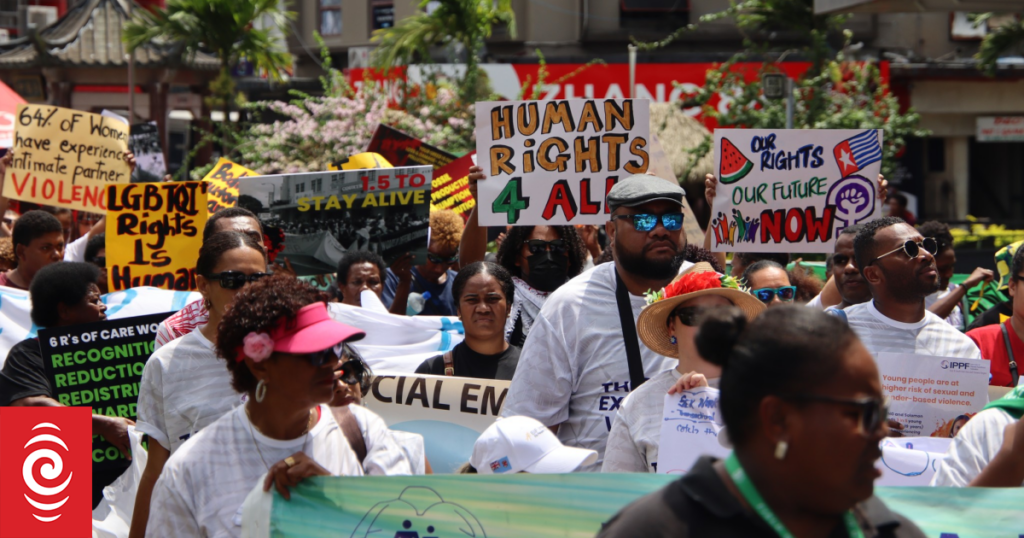Participants at the World Human Rights Day march in Suva on 10 December 2024
Photo: Fiji Women’s Crisis Centre
Fijian Activists Challenge Police Understanding of Human Rights
Shamima Ali, the coordinator of the Fiji Women’s Crisis Centre, remarked that law enforcement in Fiji seems to lack a fundamental comprehension of universal human rights. Her comments came in the wake of a significant march held in Suva to commemorate the end of the 16 Days of Activism against Gender-Based Violence, a movement that commenced on November 25.
Organized by the Fiji NGO Coalition for Human Rights (NGOCHR), the march aimed to shed light on various human rights issues affecting both Fiji and the global community.
Raising Awareness on Human Rights Violations
Ali emphasized the importance of the march in drawing attention to numerous human rights violations, such as violence against women, systemic impunity, and the ongoing struggles for decolonization in regions like West Papua.
Despite the significance of the event, she noted that the authorities had imposed restrictions that curtailed participation. “Typically, we anticipate about 800 participants when we receive a permit from the police,” Ali explained.

Fiji Police vehicles (file photo)
Photo: Fiji Police Force/Supplied
Ali reported that these restrictions even applied to carrying banners, with participants being singled out for wearing political apparel in solidarity with people from Palestine, Kanaky (New Caledonia), and West Papua.
“We had lawyers present to intervene, pointing out that these restrictions cannot infringe upon individuals’ rights to wear what they choose,” she added. “It is essential to challenge the status quo and continue marching, holding authorities accountable for their actions.”
Concerns about Diplomatic Influences
Ali also voiced her concerns regarding the implications of international diplomacy on the conditions under which the march occurred. She highlighted the Fiji government’s support for Israel and its lack of acknowledgment regarding the violence inflicted on Palestinians, interpreting these actions as interconnected to a broader political agenda.
According to her, there exists a concerning prioritization of financial and diplomatic interests, particularly concerning France and Indonesia, over fundamental human rights principles. “Diplomacy significantly impacts Fiji’s development and influences events like this march,” Ali stated adding, “Our government has not condemned the genocide in Palestine… aligning itself with Zionist ideology contributes to a larger diplomatic strategy, yet we remain steadfast in advocating for our causes.”

Shamima Ali, chief executive of the Fiji Women’s Centre, Suva 19 December 2022
Photo: RNZ Pacific/Kelvin Anthony
Ali expressed that the government’s stance does not reflect the perspectives of many Fijians, who are increasingly critical of its position. She cautioned about the global decline in human rights standards. “The world is becoming increasingly hostile, and human rights transgressions are continuously ignored. The recent U.S. elections and social media narratives often promote ideologies contrary to fundamental human rights,” she explained.
“We are in a constant battle against these trends, hence the necessity for visibility in our efforts.”
The march concluded at Suva’s Bowling Club, featuring a rally complete with informational booths, a dedicated youth corner, and exhibits designed to foster broader discussions and engagement on these critical issues.


